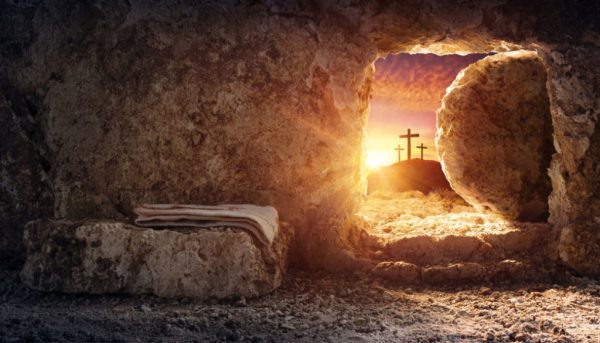We Orthodox Christians tend to hold onto certain rites and practices for a long time. I don’t mean for centuries, although that is also true. Our chief services of worship date back to the fourth and fifth centuries, respectively, and with a few additions here and there over the centuries they remain intact.
What I meant about holding onto rites is exemplified by our celebration of Easter or as we call it, Pascha. We greet each other with “Christ is risen!” rather than “hello” for the whole season, and the season doesn’t end until forty days later. We add special recognition of the season in our Saturday and Sunday services, too. (Our Pascha this year was May 2nd.)
There are a couple reasons why all the fuss. First, Pascha is ground zero for us. It is the central hope, faith and promise of Christianity. Everything else is secondary. Years ago, I hosted a mini course in Orthodoxy at the seminary where I taught in Chicago. I took students to the Cathedral to experience Orthodox worship, and one day an old baba – grandma – came to me and asked, “Do they know what this is all about? Do they know that it’s all about the resurrection?” She was one of many who were able to articulate this centrality.
Second, Pascha is the heart of our worship. This annual festival is “The Festival.” There are twelve other days called festivals throughout the year, but this one is the giant. It is “The” festival, the queen of festivals, the top of the heap, the heart of the matter. It is the hub around which the rest of the year, like a set of fifty-one spokes, revolves. You can’t miss its centrality: every Sunday is “little Pascha,” a weekly celebration of the resurrection. Our hymnody proclaims that idea week in and week out. Each week we sing a short hymn, called a resurrection tropar, to remind us that we are again celebrating Pascha.
Third, the name: Pascha. It’s a double entendre. It is the Greek word for Passover, which in Hebrew is Pesach, so it connects us with our Jewish friends and antecedents. By an interesting twist, it is also the word for suffering and so it reminds us of the cross and, of course, it is our word for Easter. We inherited it from Aramaic, the language that was primarily spoken in Israel during the time of Jesus. No matter how you translate it, however, it is a reminder that “Christ our Passover is sacrificed for us.” That ancient liturgical hymn is embedded in St. Paul’s First Letter to the Corinthians, chapter five.
Fourth, and of greatest importance, Pascha proclaims our own resurrection. Please don’t immediately think of life after death and dismiss this as fancy. Eternal life is a part of the belief of Christians but not, to my mind, the only or most essential part. The resurrection comprises a comprehensive set of values and virtues. Belief in the resurrection should inspire a sense of freedom and purpose and meaning in this life. Belief in the resurrection should empower us to service, compassion, and selflessness. Belief in the resurrection should inspire us to seek wholeness for ourselves and others, since it is promised. Belief in the resurrection should drive us to be peacemakers. In this season we sing joyfully that “Christ is free among the dead.” Insofar as we have been dead to our potential and our neighbor, Christ frees us to rise from the tombs of indifference, hostility, resentment, and insularity. You might say that the resurrection is our answer to the question, “Is there life after birth?”

















